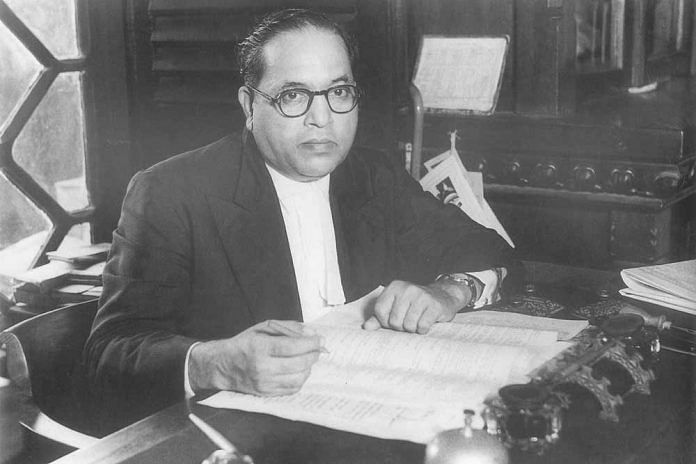The emphasis in the Constituent Assembly was that reform of the Muslim personal law should be done voluntarily.
New Delhi: On 19 September, the Union Government passed the Muslim Women (Protection of Rights of Marriage) Ordinance, 2018 that criminalises the pronouncement of instant triple talaq by a Muslim man to his wife, attracting a jail term that can extend up to three years.
The Centre ostensibly has criminalised triple talaq in the service of implementing the Supreme Court’s 2017 judgment. This judgment made no mention of any such legislative action – it merely set aside the practice as unconstitutional. While the minority opinion urged parliament to make a law to govern triple talaq, it did not call for the criminalisation of the practice.
Flavia Agnes, a Mumbai-based human rights lawyer, argues that there is no need to criminalise triple talaq and that “a criminal prosecution against the husband will surely aid in ending the marriage without securing her economic rights, which she is in dire need of”.
In her article, Agnes suggests that the current political context – the rise of Hindutva and the insecurity of Muslims in general – is an important prism to judge the motives behind, and utility of the criminalisation of triple talaq.
Zakia Soman and Noorjehan Niaz, co-founders of Bharatiya Muslim Mahila Andolan (BMMA) disagree: They argue that the political context must not play a significant role in judging the triple talaq ordinance.
“The climate brought about by the political rise of Hindutva forces has led some to conclude that the time is not right. But the time for women’s equality is never right.”
They welcome the criminalisation of triple talaq and suggest that it is a solution to the problem of “how do we bring about parity to enforce accountability in a highly-tilted relationship” in a Muslim marriage.
Constitution framers took note of “highly-tilted” power dynamic
The “highly-tilted” power dynamic between the Hindu majority and the Muslim minority in India was an important, arguably primary, consideration of the framers of the Consitution when they debated the reform of Muslim personal law and related practices.
While the Constituent Assembly viewed criminal law as a means of eradicating certain social practices — untouchability (Article 17) and forced labour (Article 23) — practices relating to Muslim personal law discussed in the context of the uniform civil code were not seen as potential candidates for this treatment.
The uniform civil code was shifted from the legally enforceable fundamental rights chapter to the legally un-enforceable directive principles chapter of the Constitution.
Ananthasayanam Ayyanagar, an influential member of the Assembly, explained the rationale behind this decision: “There is absolutely nothing in this Constitution which allows the majority to override the minority. This is only an enabling provision. Without the consent of the minority that is affected, no such law willed [sic: will be] framed. I, therefore, feel it is unnecessary to include it in the Fundamental Rights.”
On 23 November, 1948, during a heated debate on the uniform civil code, B.R. Ambedkar, chairman of the drafting committee, allayed the fears and concerns of the Muslim members of the Assembly who wanted no interference in their personal law, by arguing that: “It is perfectly possible that the future parliament may make a provision by way of making a beginning that the Code shall apply only to those who make a declaration that they are prepared to be bound by it, so that in the initial stage the application of the Code may be purely voluntary…”
We find that at no point did the Constituent Assembly anticipate the use of criminal law in the furtherance of Muslim personal law reform. Also, there is an emphasis that reform of the personal law of the Muslim community should be done voluntarily or by obtaining consent. This was seen as necessary to guard the Muslim minority against majoritarian actions of the state considering the precarious and uncertain position that they found themselves in, in light of Partition.
While making personal law reform of a community as voluntary might not be feasible today, it remains an open question if the use of criminal law is appropriate and useful. Contemporary political and social developments suggest that the status of minorities, especially Muslims, in the face of majoritarian impulses of the government is as uncertain as it was during the framing of the Constitution. It is only natural then that steps towards the social engineering of the Muslim community by this government is seen with suspicion and concern.
Vineeth Krishna E is the lead associate editor for Constitutional and Civic Citizenship Project at the Centre for Law and Policy Research, Bengaluru. He primarily works on the CADIndia website — cadindia.clpr.org.in — a portal that facilitates public engagement with India’s rich constitutional and political history.
ThePrint is the digital partner of the Centre for Law and Policy Research’s (CLPR) third edition of ConQuest, India’s premiere national quiz on the Indian Constitution, history and politics.



